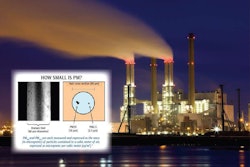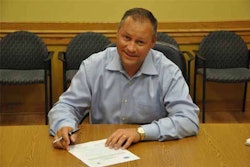
Navistar International Corp. said Thursday, April 22, that it had withdrawn a lawsuit it had lodged against the California Air Resources Board following an agreement with the state agency to address issues raised in the litigation. The truck and engine maker had asked the San Francisco Superior Court to rule that CARB was improperly certifying 2010 diesel engines equipped with selective catalytic reduction (SCR) aftertreatment because the agency was applying U.S. Environmental Protection Agency certification requirements that permitted SCR-equipped trucks to operate for extended periods without controlling NOx emissions.
Navistar said it had dismissed its lawsuit after reaching an agreement with CARB in which CARB agreed that EPA’s 2009 SCR guidance documents are not its policy. CARB also agreed to hold a public workshop by August to address the issues Navistar raised. Navistar said it believes the workshop will lead to a decision by CARB that SCR-equipped trucks can’t operate with uncontrolled NOx emissions for multiple and lengthy periods of time. “We expect that our agreement with CARB will result in equal enforcement of the 2010 NOx requirements for all engine makers,” says Jack Allen, president of Navistar’s North American Truck Group.
Earlier this month, CARB sided with EPA in Navistar’s ongoing litigation against EPA over its certification of engines with SCR aftertreatment. However, CARB’s grounds for that support – filed April 9 as a so-called “friend of the court” brief with the U.S. Court of Appeals for the District of Columbia Circuit – apparently don’t foreclose the agency’s considerations of certification standards that are tougher than EPA’s guidance.
CARB developed two basic arguments in support of EPA. First, contrary to Navistar’s claim, the 2001 EPA rule that established the 2010 NOx standard did not rule out SCR for compliance. Second, Navistar’s claims that SCR-equipped engines don’t meet the 2001 NOx requirements should be pursued in challenges to the certification of actual engines, not an EPA guidance document.
So in its April 9 filing, CARB didn’t say Navistar was wrong about SCR’s performance; it just said the challenge to EPA’s guidance wasn’t ripe for litigation. “Navistar’s substantive challenge to the policy is a fact-intensive inquiry in a context that is only hypothetical without the actual details of an engine design,” CARB said. “For example, Navistar claims that the policy allows drivers to operate their trucks with empty urea tanks, but only by looking at the certification records can we know if this is true, how long this operation is allowed, what warning and inducements occur, what emissions occur if this is the case, how likely this is to happen, and what enforcement actions will be taken by EPA (and CARB).”
Navistar would not be hurt by having to challenge certification decisions rather than EPA policy, CARB said. “It is the certification decisions that allow Navistar’s competitors to sell engines with SCR systems, not the policy itself. Thus, the policy by itself does not affect Navistar’s ‘day-to-day’ business.”
Meanwhile, the briefing in Navistar’s federal lawsuit is complete, and the case is scheduled for a hearing before the appeals court on May 10.










